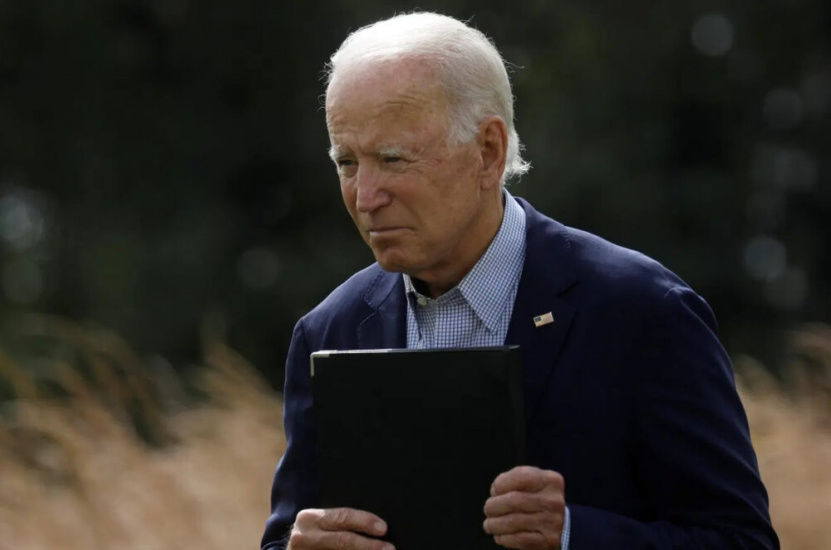International Crisis Group: Avoid race between “sanctions and centrifuges”

Among the American think tanks which host prominent scholars, publishes reports, and opinions, it is worth mentioning to cite analysis given by the International Crisis Group (ICG), also known as the Crisis Group.
In one of its latest papers, ICG has argued that Trump’s sanctions are still in place and Tehran and Washington, both reluctant to make the first move, are just go around in circles.
In the current situation, the think tank argues that the EU should appear active to break this stalemate. The think tank believes in “quiet, direct negotiations” as the best solution to break the diplomatic impasse. ICG, which perceives the EU as the most effective mediator between the two capitals, points out that by encouraging both sides to make initial good-will gestures, the bloc can pave the way for direct multilateral talks.
In an analysis released on 4 March, ICG warns that the more Iran and the U.S. postpone the nuclear negotiations, the more the JCOPA will be at grave risk of collapse.
The authors underline that after sitting at the table as the initial critical move, all sides can focus on striking an interim agreement to prevent the standoff from worsening more. The next step, as ICG suggests, can be developing an agreement to bring Tehran and Washington back into compliance with the initial 2015 deal in a synchronized manner.
As expected, the think tank accuses Iran of seeking nuclear weapons and describes Tehran’s remedial nuclear actions in response to Trump’s economic siege as a “violation” of the deal.
Whereas, Tehran’s recent steps are in accordance to paragraph 36 of the JCPOA which provides one side an opportunity to suspend compliance to the deal, in a condition of the other party’s noncommitment. In this context, the institute claims: “As a result, the ‘breakout time’ that Iran would need to produce a bomb’s worth of fissile material has dropped from a year to around three months.”
While Biden has repeatedly expressed his inclination to revive the JCPOA, his apparent “goodwill” to salvage the JCPOA has been overshadowed by a series of public feuds. For instance, in his first sit-down interview since ascending to the presidency, Biden stressed that unless Tehran stops enriching uranium, the Oval Office would not offer any sanctions relief.
In other words, notwithstanding his rhetoric denouncing the previous president’s policy towards the Iran nuclear deal, Biden’s practice is indicative of a blame game based on double standards.
Actually, Trump’s unliteral withdrawal from the 2015 deal in 2018 accompanied by a renewed architecture of sanctions was the original sin of the status quo. Surprisingly, Biden has adopted an approach which is fundamentally similar to the one his predecessor followed.
In this context, ICG argues that given the unrealistic conditions both capitals have set for the other side to embark on the diplomatic process, Iran and the U.S. are overplaying their hands just to intensify the current impasse. Thus, the think tank describes the fundamental dynamics between Tehran and Washington as “only marginally different from those before 20 January.”
ICG blames the E3 (France, the UK, and Germany) that instead of encouraging Iran and the U.S. to live up to their commitment under the 2015 deal, are just “frittering away the political capital they accumulated through their strong support for the deal during the Trump presidency.”
To teach the ropes of how to step out the current political standoff, the think tank suggests: “An immediate step out of the stalemate could be an agreement on an initial exchange of gestures that could break the deadlock.”
ICG highlights that “either quiet U.S.-Iran discussions or third-party mediation” is required for brokering such an agreement and sheds light on the EU as the coordinator for the implementation of the JCPOA. The Brussels-based think tank believes that convening an informal meeting between American and Iranian sides is an initial step forward that can serve as a milestone in Tehran-Washington relations under Biden in terms of the JCPOA. In order to make such a session plausible, the EU can indirectly orchestrate initial steps, the think tank adds.
ICG describes Iran’s legal and formally declared nuclear activities as “breaches” of the JCPOA and proposes some recommendation “to prevent further worsening of the situation.” In this regard, the think tank emphasizes that “once at the table, the parties should negotiate an interim arrangement followed by a timetable for simultaneously reversing Iran’s nuclear breaches and U.S. sanctions.”
According to the analysis, the initial steps might include “the U.S. facilitating Iran’s access to some of its frozen assets for humanitarian imports in return for Iran halting one of the proliferation-sensitive nuclear activities it is now pursuing.”
ICG mentions that Iran’s presidential election campaign will start in mid-April and writes: “While it is possible to roll back Iran’s nuclear program amid the country’s presidential campaign.”
It argues should the critics of restoring the nuclear deal in Iran win a majority vote by the time a new Iranian president comes to the office, negotiations will be more difficult. ICG warns that in such a condition “the kind of brinksmanship that could jeopardize what remains of the nuclear deal and further inflame regional tensions” would be more likely to come up.
Therefore, the International Crisis Group emphasizes that “time is of the essence” so the parties should “build significant momentum” to avoid the race between “sanctions and centrifuges.”
Source: Tehran Times

